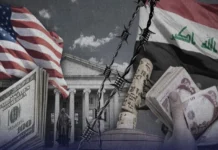Good Morning
The Global Economy Is Crumbling Before Our Eyes
A slow-motion collapse of the global financial system is underway, and it’s no coincidence. Historians Neil Howe and William Strauss suggest we are now deep into a historical crisis cycle—what they call the Fourth Turning—a destructive period that occurs every 80 to 100 years, reshaping societies, economies, and global power structures.
As this cycle unfolds, traditional financial systems may falter—and Bitcoin may serve as the escape hatch.
The “Fourth Turning” and Historical Collapse Cycles
Howe and Strauss, in their 1997 book “The Fourth Turning: An American Prophecy”, proposed that history moves in four recurring generational cycles:
- The High – A time of strong institutions and social cohesion (e.g., post-WWII boom)
- The Awakening – A cultural rebellion against institutions (e.g., 1960s-70s)
- The Unraveling – An era of weakening institutions and growing individualism (1980s–2000s)
- The Fourth Turning – A full-blown crisis where systems collapse and power structures reset
Past Fourth Turnings included the American Revolution, the Civil War, and the Great Depression leading to World War II. According to Howe, we entered the current crisis phase sometime between the mid-2000s and early 2020s.
Why Collapse Is Unfolding Now
Several converging forces are driving the present global disintegration:
1. Debt and Financial Instability
Since the 2008 financial crisis, governments and corporations have become dangerously reliant on low interest rates and easy credit. This has fueled record levels of global debt while inflating asset bubbles in stocks, real estate, and bonds. Now, with interest rates rising and debt burdens ballooning, the system is buckling.
2. Social Fragmentation and Institutional Breakdown
Trust in institutions—governments, media, banks—has collapsed. Rising inequality has triggered political polarization and populist uprisings across the world. From Trump in the U.S. to Meloni in Italy, mainstream politics is giving way to nationalist and anti-establishment movements.
3. Geopolitical Realignment and Superpower Conflict
China’s rapid rise has disrupted the unipolar world order dominated by the United States. Tensions over Taiwan, trade, and technology resemble the great-power rivalries of past Fourth Turnings. The new U.S.-China standoff has already begun to fracture global supply chains and military alliances.
Economic Fallout and Political Risk
In a debt-ridden world, governments typically face three choices:
- Austerity
- Default
- Inflation
Most choose inflation—it quietly reduces debt by devaluing money. However, this approach erodes savings, purchasing power, and investor confidence. The 2020 pandemic response demonstrated this clearly: trillions were printed, and inflation surged across essential goods and services.
If inflation persists, governments may resort to financial repression, compelling savers to hold government bonds with negative real returns, or imposing capital controls to trap wealth within borders.
Simultaneously, geopolitical conflict—especially in flashpoints like the Taiwan Strait—could trigger financial panic, crash markets, and cripple international trade. Countries are already being forced to choose sides between Western powers and BRICS nations.
Strategic Positioning: What Investors Can Do
According to financial historian Russell Napier, we are entering an era of high inflation, capital controls, and sustained financial repression. Investors should expect long-term constraints on liquidity and freedom of capital movement.
1. Bonds Are No Longer Safe
With inflation rising, bondholders will demand higher returns. This drives down bond prices, making once-safe government and corporate debt a liability.
2. Shift Toward Tangible Sectors
Infrastructure, energy, defense, manufacturing, and raw materials will become focal points for state investment. These sectors are positioned to benefit from government stimulus and national security priorities.
3. Gold, Silver, and Real Assets
Precious metals historically outperform during inflationary periods. Gold is increasingly seen as a reserve asset of last resort, especially if fiat currencies come under pressure.
4. Bitcoin as a Sovereign Hedge
Cryptocurrencies with strong adoption—primarily Bitcoin and Ethereum—may offer a path to preserving wealth in the face of monetary devaluation. As traditional systems falter, decentralized assets could provide an exit strategy for individuals seeking monetary sovereignty.
“Only digital assets with real utility and decentralized trust will endure. Most others will collapse,” analysts warn.
Conclusion: A Dangerous Decade, A Rare Opportunity
The 2020s may bring chaos, but also transformation. History shows that each Fourth Turning ends not in total destruction, but in renewal. After crisis comes rebirth.
Investors and citizens who adapt—by repositioning portfolios, securing tangible assets, and exploring decentralized options—may not only survive this upheaval but emerge stronger on the other side.
@ Newshounds News™
Source: CoinTribune
~~~~~~~~~
WATCH LIVE: Fed Chair Jerome Powell delivers remarks on America’s economic outlook
Powell is widely expected to shed light on the timing of interest rate cuts and where the Fed sees the economy headed over the next year.
@ Newshounds News™
Source: Fox Business News
~~~~~~~~~
Seeds of Wisdom Team RV Currency Facts Youtube and Rumble
Newshound’s News Telegram Room Link
Follow the Roadmap
Follow the Timeline
Seeds of Wisdom Team™ Website







